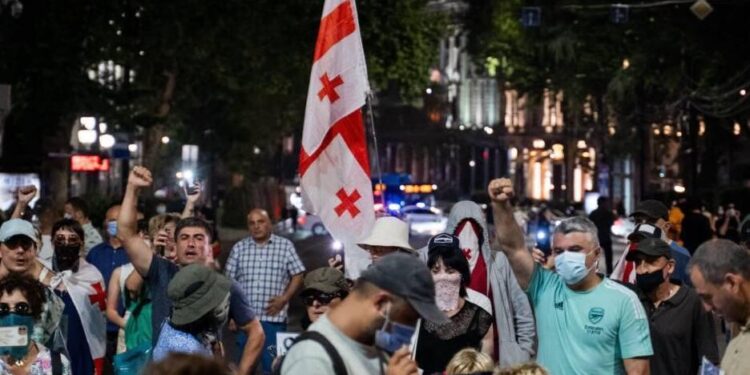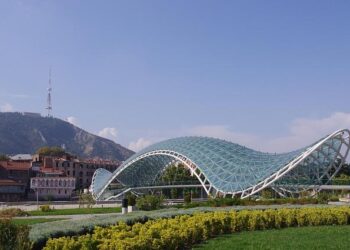Pro-European protests in Georgia have persisted for an unrelenting 264 days, marking one of the longest continuous demonstrations in the country’s recent history. Demonstrators, primarily advocating for closer integration with the European Union and reforms within the government, have maintained their presence despite mounting challenges. The sustained protests, extensively covered by regional media including Caucasian Knot, underscore growing public demand for democratic progress and alignment with European standards amid a complex political landscape.
Pro-European Protests Persist as Demonstrators Demand Democratic Reforms
Marked by unwavering resolve, thousands of protesters have taken to the streets for 264 consecutive days, demanding sweeping democratic reforms and a firmer alignment with the European Union. Events remain largely peaceful as demonstrators, representing various social and political groups, converge daily at central locations across Tbilisi, raising calls for judicial independence, transparent governance, and enhanced human rights protections. Among their key demands are:
- Immediate release of political prisoners and detained activists
- Electoral system overhaul to ensure fair representation
- Strengthening rule of law to curb corruption
- Increased cooperation with European institutions
The government’s response continues to draw mixed reactions. While pledging dialogue, officials have refrained from making substantial concessions, fueling further agitation among demonstrators. Analysts note the protests have catalyzed significant political discourse, intensifying Georgia’s struggle between pro-European aspirations and entrenched domestic challenges. Below is a brief overview of protest milestones and public opinion trends over the months:
| Month | Protest Size | Key Developments | Public Support (%) | ||||||||||||||||
|---|---|---|---|---|---|---|---|---|---|---|---|---|---|---|---|---|---|---|---|
| Month 1 | ~5,000 | Initial rallies; calls for EU integration | 68 | ||||||||||||||||
| Impact of Prolonged Demonstrations on Georgian Political Landscape and Regional Relations The relentless wave of protests, persisting for over eight months, has left an indelible mark on Georgia’s political landscape. The continuous public mobilization has amplified pressure on the government to accelerate democratic reforms and align more closely with European standards. Key political figures have been compelled to reconsider their stances, fostering an environment where dialogue between opposition factions and ruling parties is cautiously revived. Additionally, sustained civil unrest has exposed fractures within local institutions, highlighting challenges associated with governance, electoral transparency, and judicial independence. The impact is palpable: polls indicate a significant shift in voter sentiment favoring pro-European parties, signaling a potential realignment ahead of upcoming elections. Regionally, Georgia’s prolonged demonstrations have not gone unnoticed by neighboring states and international actors. The protests underscore the country’s strategic pivot towards the West, straining relations with Russia and complicating Moscow’s traditional influence in the South Caucasus. Meanwhile, the European Union and the United States have emphasized support for peaceful protest and democratic processes, intensifying diplomatic engagements. Key regional consequences include:
|
















